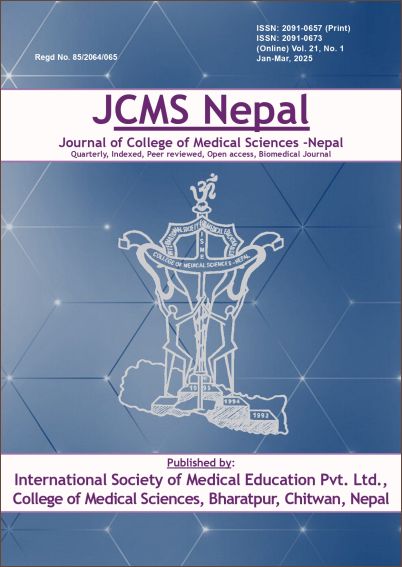Knowledge and Attitude Regarding Hazards of Plastic Use among Secondary School Students in Gaindakot-5, Nawalparasi
DOI:
https://doi.org/10.3126/jcmsn.v21i1.68712Keywords:
attitude, hazards of plastic use, knowledge, secondary level studentsAbstract
Background
The chemical composition of plastics, such as bisphenol A (BPA) and phthalates, can leach into the environment, contaminate food and water sources, potentially disrupting hormonal balance and causing adverse health effects in humans. The study to assess the knowledge and attitude regarding hazards of plastic use among secondary school students in Janak higher secondary school.
Methods
A descriptive cross-sectional study was conducted among 189 students using a self-administered questionnaire. Data were analyzed using SPSS (version 18.0), and the Chi-square test was used to find associations between socio demographic variable, level knowledge and attitude.
Results
Study result shows that majority (81%) of the respondents demonstrated average knowledge regarding the hazards of plastic use. Attitude towards plastic were mostly with significant differences in knowledge and attitude based on demographic factors like education level and gender.
Conclusions
Respondents had varied level of understanding regarding the hazards of plastic use, with a significant proportion demonstrating awareness of key issues such as plastic's non-biodegradability and its environmental consequences. Most students had negative attitude towards plastic use, expressing concerns about its health and environments effects. Most students had negative attitudes towards plastic use, expressing concerns about its health and environmental effects.
Downloads
Downloads
Published
How to Cite
Issue
Section
License
Copyright (c) 2025 The Author(s)

This work is licensed under a Creative Commons Attribution-NonCommercial-NoDerivatives 4.0 International License.
This license enables reusers to copy and distribute the material in any medium or format in unadapted form only, for noncommercial purposes only, and only so long as attribution is given to the creator.




